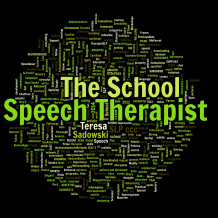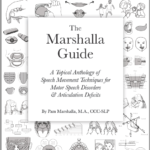Outside Evaluations-Are they really that specialized anymore?

As a school speech language pathologist, I haven’t been impressed with outside speech and language evaluations for quite awhile. What I’ve noticed over the past several years, from the outside evaluations that have landed on my desk is that not one has been in-depth or used a variety of unique tests to aid differential diagnosis. The general format for these outside evaluations is now the CELF (Clinical Evaluation of Language Fundamentals) and maybe the PPVT (Peabody Picture Vocabulary Test). The reality is that most school speech language pathologist probable give the CELF more often and are just as good at interpreting the results. Most of the time after reading an outside speech and language evaluation, I have more questions than concrete information. Very few outside evaluations go the extra mile these days. I usually end up finding the language information contained in neuropsychological reports more comprehensive and helpful.
When I first started working in the mid-80ies my school assessments were not as detailed as they are today. Perhaps we could chalk that up to a lack of experience but I think was just the way things were done. Back then we usually recommended that more involved students go out of school and obtain a comprehensive evaluation involving several disciplines. Where I lived many of the hospitals provided comprehensive evaluations focusing on child development and academics.
Those outside evaluations often included physicians, developmental specialists, educational specialists, psychologists, physical therapists, occupational therapists and of course speech language pathologists (then referred to as speech therapists by most). What made these teams special was that they took the time to meet with the children over several sessions then met as a team to compare findings after that presented evaluations and service recommendations to parents. While those evaluations were detailed, the one problem was that those evaluations teams rarely looked beyond the clinical setting. Schools then received findings and recommendations, weeks if not months later. Schools were rarely included in the actual process or the final meetings.
Reading those evaluations was always an education in itself. The speech language pathologist’s report was usually peppered with tests I had only seen in grad school or not at all. It was learning experience to read and compare findings from all disciplines especially the medical and neuropsychological side. Most of the time I felt those comprehensive evaluations were in-depth, provided a key to the students learning style and provided specific information to aid differential diagnosis.
While those evaluations gave us a good insight into the child’s learning style and needs, the outside evaluations often lacked the knowledge on how to design therapy approaches that could actually be implemented in a school setting. I remember the speech and language therapy recommendations (along with most other disciplines recommendations) were often too grand to be carried out in the public school setting. The outside evaluations gave us some very good information but these highly specialized teams had little understanding on how to realistically service students in the public school setting.
Since those days, laws have changed. Schools were made financially responsible for almost all testing. Special education evaluation services in schools had to evolve. Everyone involved in special education had to know how to diagnosis without having the clout to diagnosis.
Schools were now purchasing test material that were cutting edge. Speech language pathologists, special educators and school psychologists were learning how to assess students and look deeper into a child’s overall needs. Schools began offer a greater variety of services and outside evaluation recommendations became fewer and fewer. The school evaluation process became not only more comprehensive but more of a team effort.
While I liked the information obtained through those outside comprehensive evaluations, the way we do it now is better. We know the students we’re testing, we have a feeling on how they will do in the curriculum, we can recommend services that fit the school schedule, suggest services that are best suited to the child and work as a team with the parents. If we need or want a true “diagnosis” we will send students out for neuropsychological evaluations or other specialized testing.
In the past clinical speech language pathologists (and their teams) had the inside track on assessing language issues in school aged children but I don’t feel that is even close to being true these days. Our school assessments have become so specialized that school evaluations teams often know exactly what is going on with a student before testing begins, we are able to consult on what areas to target, talk to teachers about current performance and observe the child in the school setting. Many schools are able to purchase some of the evaluation tools needed to dig a little deeper. However, budget constraints and time factors will keep many school evaluators from being up to date and cutting edge. There is still a place for outside evaluations but clinical speech language pathologists who claim to be evaluation specialists need to step their game and differentiate their approach.
Outside evaluators need to keep in mind the reason why the students come to them in the first place. It’s not always because of schools doing a poor job. Schools may need your expertise or just be limited terms of materials. Outside evaluators from all disciplines should consult with the school professionals, as a courtesy, to review previous work with the student, ask about areas of concern and find starting points for extended testing. Clinical speech language pathologists, please don’t send school speech language pathologists reports containing just the CELF-5 or another similar common test battery without consulting us. Find testing tools that will enhance test results not repeat results. Please keep in mind that sometimes we need your strong but flexible recommendations to support our findings. Be aware of the constraints of the school day. Special education students have a lot of issues to deal with and there are only so many hours in the day. Please do not sent the same recommendations for every student you evaluate, it only lessens the impact of your recommendations.
With our more challenging cases we often want and need outside input. Find ways to make your findings and recommendations meaningful and helpful
This is the third of three (long winded:) articles focusing on the School Speech Language Pathologist and the problems with their changing role. This really goes against what is trending in education. My first two articles “Have School Speech Therapists Lost Their Focus” and “Is the gap widening between school speech language pathologists and clinical speech language pathologists” generated a lot of interest. As always looking for you feedback.
Professional Liability for SLPs








